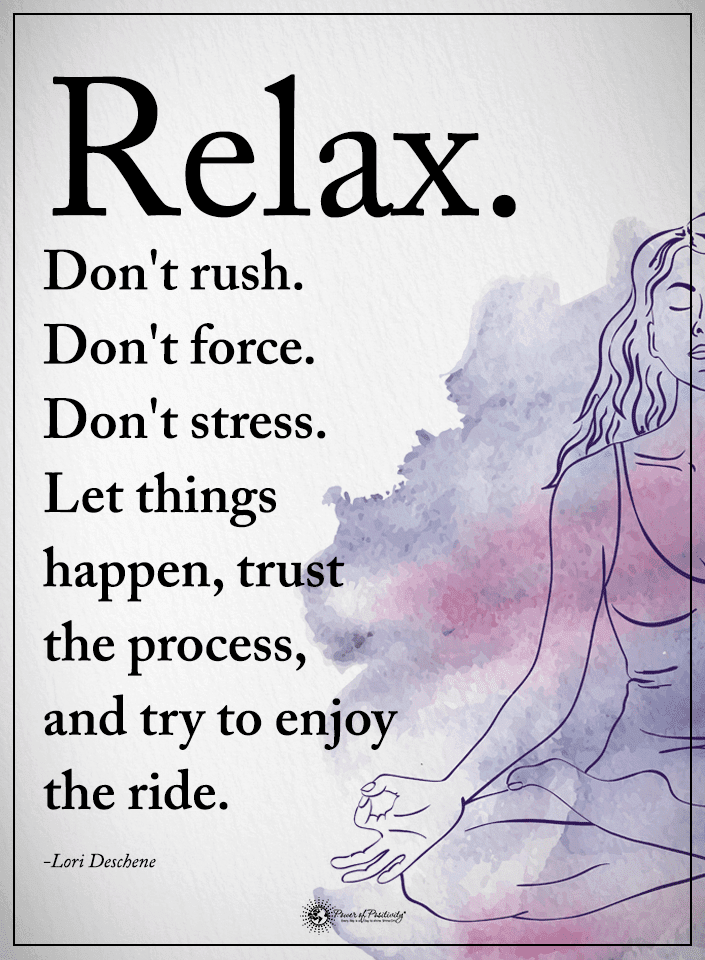Do you tend to obsess over minor details, or do you tend to zoom out and look at the broader perspective of a situation? Many people tend to focus on small things, which is often detrimental to seeing the big picture.
If you’re aiming for success, you’ll want to keep an eye on bigger things than the small issues you encounter every day. But how can you make that work? Here are three ways to stop stressing over small things and retain focus on the bigger picture in a further five steps.
3 Ways To Stop Stressing Over Small Things And See The Big Picture
Don’t be so hard on yourself! Relieve yourself of these worries.
 1. Fight Negative Thoughts
1. Fight Negative Thoughts
Stressing out over small things usually involves a lot of negative thoughts that can compromise your rationality. So when a negative thinking comes into your mind, observe it nonjudgmentally, hear it out, and then challenge it. Is it realistic? Is it exaggerated? Or is it objective? What is a more likely and more positive outcome? Here are some tips for fighting negative thoughts:
· Stop Overthinking
Start being aware of your thought processes. When you start to overthink something small, put into practice steps to stop that process. Step in and bring yourself back to earth, validating your concerns but focusing on moving to more positive and productive thoughts.
· Reframe Worry
Worry comes from perception, and it’s how you view things that determine how you feel about them. If worrying over small things is a frequent problem for you, learning to reframe those thoughts is a helpful way to fight the negativity. Ask yourself if you stress over these tiny details is worthwhile, if it will matter in a week, or if what you fear is grounded in reality.
· Reframe Fear
Fear is a powerful and all-consuming emotion. Address your fears over little things, find their roots, and then remind yourself of grounded, realistic facts that contradict your fear. Think about how fear isn’t an order – it’s a reminder to be cautious. So be careful, but move forward and prove that you’ve learned from the initial cause of your fear.
· Focus On Solving Problems
When bad things arise – which they will – focus on the problem-solving aspect of them. Instead of drifting your thoughts into self-loathing, insecurity, anxiety, or other negative emotions, concentrate with all your effort on finding solutions and learning from your situation. You’ll find ways to resolve those challenges very quickly.
2. Use Mindful Techniques To See The Big Picture
When you stress out over small things, it is usually because you’re drifting away from the present. Your focus is on the future, the past, and on things that don’t matter. Mindfulness, which is the act of staying focused in the current moment, can help you combat this. Here are some mindful techniques to use to stop stressing over small things:
· Breathe Deeply
When you feel yourself start to stress out over small things, pause and draw deep breaths. Inhale deeply and exhale equally deeply, pausing in between and slowing your pace until you feel more relaxed. Do this a few times in a row, and then bring your attention back to the world around you. The small things likely won’t feel like such a big deal anymore.
· Meditation
Even a tiny bit of mindful meditation twice daily for just ten minutes each time can benefit you. Your stress levels will drop, and your positive thinking will increase dramatically when you take the time to meditate, stay present, and stop concerning yourself with little details.
· Ground Yourself
When you focus on something small and start getting ahead of yourself with worry, quickly pause and do a grounding exercise. Focus on an option in the room, admire all its sensory details, or engage your senses by picking out things you can hear, smell, see and feel.
· Schedule It
When you’re still getting used to using mindfulness techniques, it’s easy to forget about them. So schedule a few reminders that tell you to take a few moments to be mindful throughout the day. Before long, you’ll be naturally integrating this into your everyday life, and your view of big and small things will change with this habit.
3. Rest Enough
Being stressed out over small things tends to happen more when you’re tired. Exhaustion can change how the brain works, making it hyper-fixate on all the wrong things that don’t matter. This is why getting enough rest is so crucial for reducing stress and promoting positive thinking. Here are some ways to do this:
· Don’t Bring Work Home
Many people find their jobs very stressful, and if you work long hours, you may be even more tired from it. If you start extending your work hours by bringing things home to do, your brain can’t disconnect from the stressful environment. You may even begin to associate your home – meant to be a restful space – with work. Research dictates that you have to have a clear separation between work and personal life to reduce stress.
· Sleep Enough
It would be best to sleep for at least eight hours a night to avoid overwhelmed or anxious feelings. Studies have found that sleeping sufficiently has positive effects on both your physical and mental state and feeling rested the next day means less stress to deal with overall and less fretting over little things.
· Take Vacations
Most people get paid time away from work, depending on the country you’re in. But not everyone uses them all up, which is a shame! They’re holidays you get to take while still being paid; why shouldn’t you take them? Of course, taking these vacations is even more critical for stress because it helps prevent burnout and exhaustion from work. Burnout can significantly worsen your anxiety and make the small things seem much more significant.
 5 Ways To Retain Focus On The Big Picture
5 Ways To Retain Focus On The Big Picture
Are you doing these things to keep things in perspective?
1. Devote Time To Thinking
To focus on the bigger picture, one must have the time to think about it. When you hurry to make decisions, it’s easy to focus on the wrong things or the details that grabbed your attention first. Of course, some decisions have no choice but to be made quickly, but if you can help it at all, it’s a good idea to schedule a specific time for thinking.
When you sit down and properly concentrate on thinking, you can think about the big picture more, considering:
- What will matter from a long-term perspective
- What won’t matter in a few weeks, or a few months, or even in a few years
- The things aren’t worth focusing on
Don’t delve into overthinking – focus on analyzing things you haven’t yet thought of, weighing the possibilities, and then finally making a choice.
2. Ask Yourself Difficult Questions
Questions that focus on the big picture are often difficult ones to ask. They’re ones you’d usually push to the back of your mind because they make your head spin with the vastness of them. But to begin focusing on the big picture, one must start to ask themselves these questions. Such big questions include:
- What sort of legacy do you hope to leave behind?
- What impact would you like to make on the world?
- In twenty years, or when you’re old and gray, or at any far point in the future, where would you like to be?
- What is on your bucket list, and why?
- What actions should you take now to build your legacy?
- How would you like to be remembered, and do your actions lend to that?
3. Bounce Ideas Off A Friend
Big-picture ideas can be overwhelming, and they involve a lot of thought and concepts that you may not have begun to ponder. The only perspective you have in your life is your own, so if you want to get more ideas and points of view, it can be a good idea to grab a friend, family member, colleague, or other trusted person to discuss things with.
You can bounce ideas off of the person of your choice, understanding different ideas and concepts and inviting criticism, other perspectives, and new things to consider. All the suggestions a friend can give you may provide you with renewed insight into the big picture.
If you’re not entirely comfortable talking to someone else about your ideas, you can opt to speak to yourself by journaling, thinking, or even talking out loud to an inanimate object. Still, you’ll get the most benefit out of having someone with a different paradigm to bounce thoughts off of.
4. Stop Imposing Limits
There are some limits in life. For example, you probably won’t grow wings overnight, and you likely can’t make yourself grow five more inches as an adult, for example. But aside from those obvious facts, it’s worth remembering that the sky can be the limit.
Instead of imposing limits on yourself, dare to dream and imagine things that seem out of reach. Asking yourself questions relating to these limits can grant further introspection and encourage you to keep your goals large and your mind open. For example, you might ask:
- If I was featured on the newspaper’s front page, what would I want it to be for?
- If I could do just about anything in the world, what is the first thing I would want to do?
- How about if money was no object, how would I spend it?
5. Make and Plan Towards Goals
Big-picture thinking can often come with big-picture goals. Creating goals to work towards gives you big achievement aspirations that keep your mind on the larger scale of imagination. Here are some tips for making productive and positive goals:
- Pick goals that are specific so you can easily stick to them, pinpoint them, and abide by them.
- Break larger goals down into smaller goals that you can work towards one by one.
- Track your progress to see your improvements and how these efforts add up to your bigger picture.
- Set deadlines for individuals goals and subgoals and focus your efforts on meeting them.
- Identify actionable and workable steps towards your goals, and do something that moves you closer to them every day.
 Final Thoughts On Some Ways To Stop Stressing And Ways To Retain Focus On The Big Picture
Final Thoughts On Some Ways To Stop Stressing And Ways To Retain Focus On The Big Picture
It’s not always easy to stay focused on the big picture, but it’s certainly doable. By moving your focus to bigger things and relieving stress from smaller issues, you’ll be able to shift your paradigm into a more productive and effective view of the future.


















